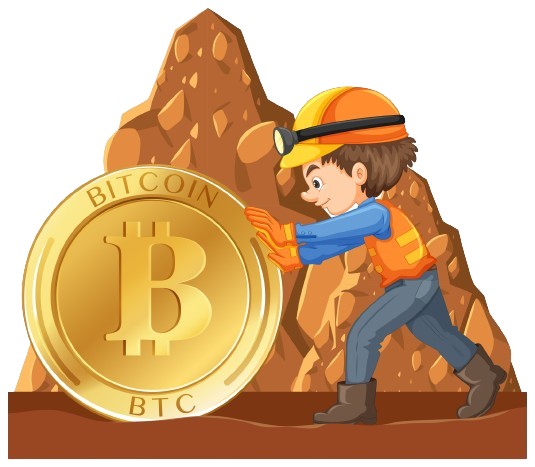
The concept of mining has become inextricably linked to the decentralized nature of these digital assets. Bitcoin, the pioneering cryptocurrency, introduced the concept of mining as a means of securing the network and facilitating the creation of new coins. As the popularity of Bitcoin continues to grow, the question of whether mining Bitcoins directly leads to the acquisition of these coveted digital assets has piqued the interest of many. In this comprehensive exploration, we delve into the intricacies of Bitcoin mining, unraveling the process and examining its role in the overall ecosystem.
Understanding Bitcoin Mining
Bitcoin mining is a computationally intensive process that serves two critical purposes: validating transactions on the Bitcoin network and creating new Bitcoins. Miners employ specialized hardware and software to solve complex mathematical puzzles, a process that consumes vast amounts of computing power and energy. By successfully solving these puzzles, miners contribute to the security and integrity of the Bitcoin network while simultaneously earning rewards in the form of newly minted Bitcoins.
The Role of Mining in Bitcoin’s Decentralization
One of the core principles of Bitcoin is its decentralized nature, which is achieved through a distributed network of miners. Unlike traditional financial systems that rely on centralized authorities, Bitcoin’s mining process distributes the power of transaction validation and coin creation among a global network of participants. This decentralization ensures that no single entity can control or manipulate the Bitcoin network, fostering transparency and trust within the ecosystem.
Mining Rewards and Block Rewards

When a miner successfully solves the computational puzzle and validates a block of transactions, they are rewarded with newly minted Bitcoins. This reward is known as the block reward, and it serves as an incentive for miners to contribute their computing resources to the network.
Initially, the block reward was set at 50 Bitcoins per block, but it is designed to halve approximately every four years, ensuring a gradual and controlled supply of new Bitcoins.
Solo Mining vs. Mining Pools
While individual miners can participate in the process of mining Bitcoins, the increasing computational complexity and competition have made it increasingly challenging for solo miners to succeed. To overcome this hurdle, many miners have joined mining pools, which are collaborative efforts where multiple miners combine their computing power to increase their chances of successfully mining a block and share the rewards proportionally.
Mining and Transaction Fees
In addition to the block reward, miners also receive a portion of the transaction fees associated with the transactions they validate and include in a block. These transaction fees are paid by users who wish to have their transactions processed more quickly on the Bitcoin network. As the Bitcoin ecosystem continues to grow and transaction volumes increase, the importance of transaction fees as a revenue stream for miners is expected to rise.
Storing Mined Bitcoins in a Bitcoin Wallet
Once a miner successfully mines a block and receives the associated block reward and transaction fees, the newly minted Bitcoins are credited to the miner’s Bitcoin Wallet. A Bitcoin Wallet is a digital wallet that allows users to securely store, send, and receive Bitcoins. Miners need to choose a secure and reliable Bitcoin Wallet to safeguard their hard-earned digital assets.
The Role of Mining in Bitcoin’s Security

Bitcoin’s security is derived from the collective computing power of the network, known as the hash rate. The more miners participate in the process, the higher the hash rate, and the more secure the network becomes. This security model, known as Proof-of-Work (PoW), ensures that it becomes increasingly difficult for malicious actors to manipulate the blockchain or attempt double-spending attacks.
The Future of Bitcoin Mining
As Bitcoin adoption continues to grow and the mining industry evolves, the future of mining is subject to various factors. The increasing complexity of mining and the need for more energy-efficient hardware have sparked discussions around alternative consensus mechanisms and the environmental impact of mining operations. Additionally, the role of mining in securing the Bitcoin network and ensuring its decentralization remains a topic of ongoing debate and innovation.
Conclusion
In the intricate world of Bitcoin, mining plays a pivotal role in the creation, validation, and security of the cryptocurrency. While the process of mining Bitcoins does indeed result in the acquisition of newly minted coins, it is a complex endeavor that extends far beyond mere acquisition. Mining is the backbone of Bitcoin’s decentralization, ensuring that no single entity can control the network and fostering trust and transparency within the ecosystem.
From solo mining to collaborative mining pools, from block rewards to transaction fees, and Bitcoin Wallets to the network’s security, the mining process encompasses a multitude of components that work in harmony to maintain the integrity and longevity of the Bitcoin network. As the cryptocurrency industry continues to evolve, the role of mining will undoubtedly adapt and innovate, driven by the pursuit of efficiency, security, and the core principles that have made Bitcoin a revolutionary force in the world of finance.
While the future of mining may hold challenges and opportunities, one thing remains certain: the concept of mining Bitcoins is inextricably linked to the decentralized nature of the cryptocurrency, and its continued success will depend on the collective efforts of miners worldwide, working tirelessly to secure the network and ensure the sustainability of this groundbreaking digital asset.